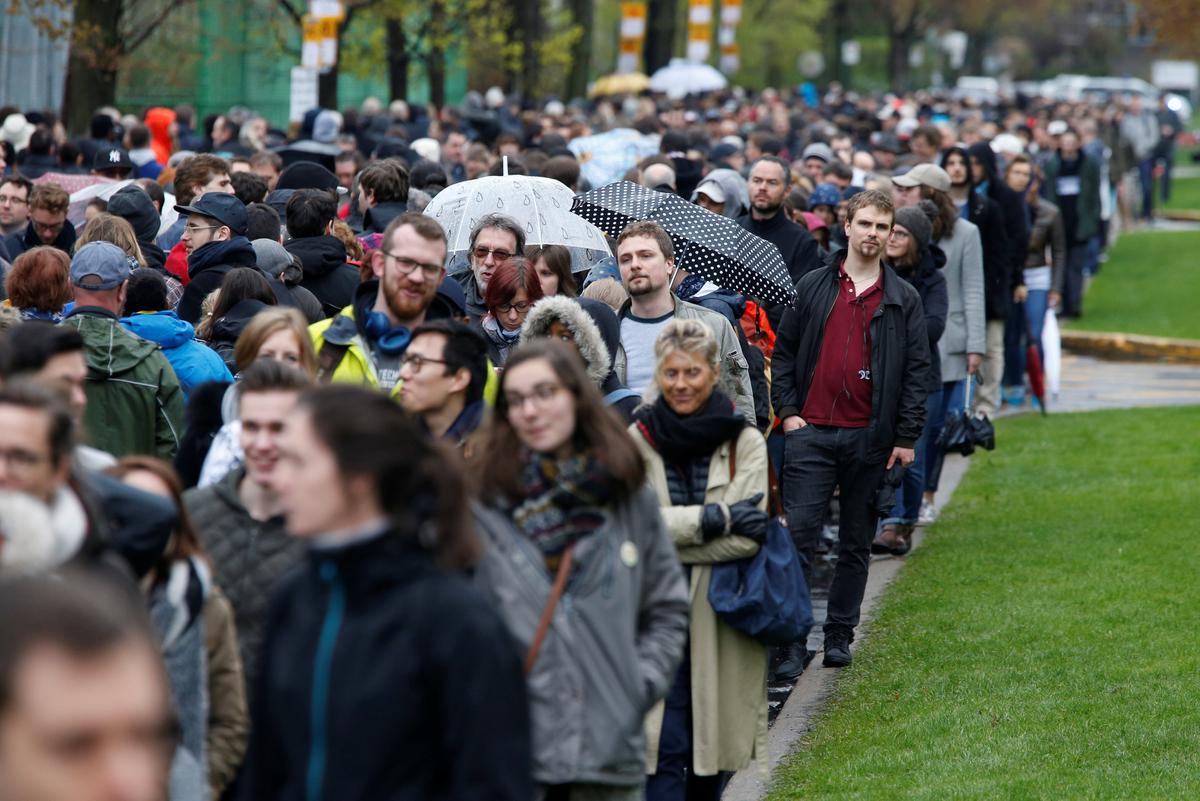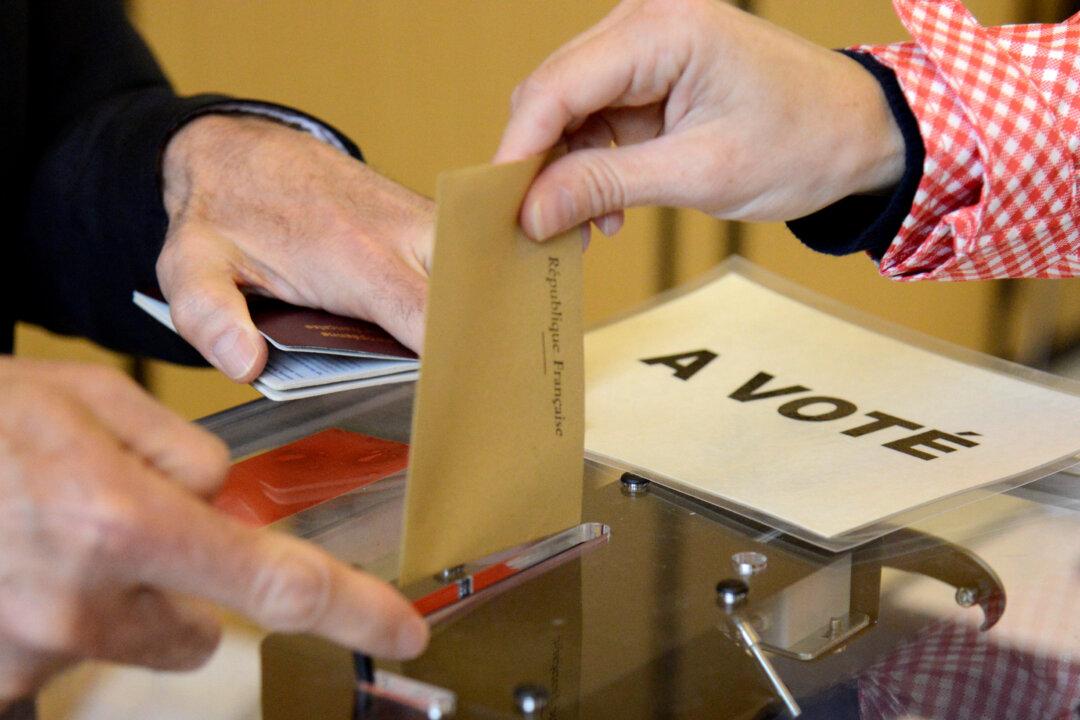PARIS—France sought to keep a computer hack of front-runner Emmanuel Macron’s campaign emails from influencing the outcome of the presidential election, with the electoral commission warning on Saturday that it may be a criminal offense to republish the data.
Macron’s team claimed a “massive” hack had dumped emails, documents and campaign financing information online just before campaigning ended on Friday and France entered a quiet period, effectively forbidding politicians from commenting on the leak.
Polls have been predicting that Macron, a former investment banker and economy minister, is on course for a comfortable win over Marine Le Pen in Sunday’s election, with the last surveys showing his lead widening to around 62 percent to 38.
“We knew that this kind of risk would be present during the presidential campaign, because it has happened elsewhere. Nothing will be left without a response,” French President Francois Hollande told French news agency AFP.
The election commission, which supervises the electoral process, warned social and traditional media not to publish the alleged hacked emails lest they influence the vote outcome, but may find it difficult to enforce its rules in an era where people get much of their news online, information flows freely across borders and many users are anonymous.
“On the eve of the most important election for our institutions, the commission calls on everyone present on internet sites and social networks, primarily the media, but also all citizens, to show responsibility and not to pass on this content, so as not to distort the sincerity of the ballot,” the commission said in a statement on Saturday.
“The commission stresses that publication or republication of these data...could be a criminal offense,” it said.






